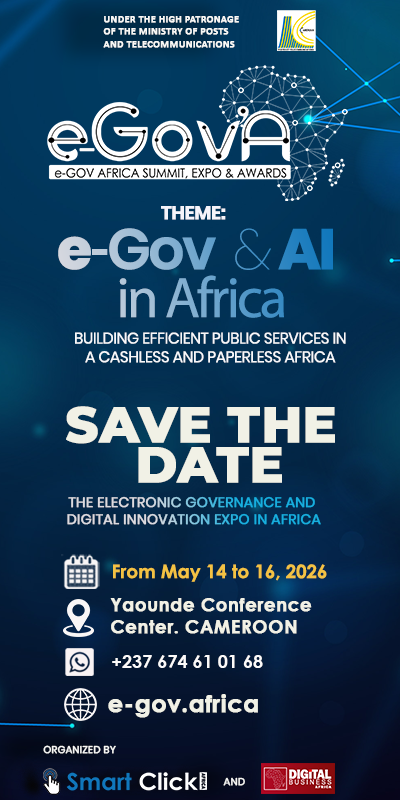[DIGITAL Business Africa] – On 25 June 2025, the Internet Corporation for Assigned Names and Numbers (ICANN) issued a formal notice to Gowtamsingh Dabee, the court-appointed liquidator of AFRINIC, the Regional Internet Registry for Africa and the Indian Ocean. ICANN’s letter, signed by CEO Kurt Erik Lindqvist, expresses “serious concern” about the conduct of AFRINIC’s board election and warns that a compliance audit may follow unless reported irregularities are swiftly remedied.
Major irregularities flagged
ICANN cites several member complaints:
- Electronic voting registration failures: some candidates never received their online voting credentials.
- Proxy abuses: AFRINIC’s bylaws cap proxies at five per proxy-holder for in-person voting, but 2025’s election imposed no limit-raising fears of fraudulent POAs and ballot stuffing.
- Leak of voter lists: Numbers Resource Society (NRS) representatives circulated an “endorsement” form bearing AFRINIC’s logo, implying improper access to the official voter registry.
- Suspension of the poll: voting resumed on 23 June but was abruptly “frozen” at 17:32 (Mauritius time) to allow investigations, with no clear timetable for reopening.
Digital Business Africa has obtained eyewitness accounts from two anonymous attendees of the canceled in-person vote, both describing an “apocalyptic” scene. Their stories, alongside ICANN’s notice, are rallying AFRINIC members to reassert control over their regional registry’s governance.
“A demonstration of organized fraud”
“We witnessed a demonstration of organized fraud engineered by NRS and its team, using a staggering volume of proxies-some genuine, many hacked,” reports one anonymous observer. Dozens of falsified POAs, mostly issued by NRS delegates absent from AFRINIC’s official database, were presented at the polling station. Only the combined pressure of TESPOT, ISPA-DRC, a local operator (Emtel), and an Indian Ocean candidate-backed by legal counsel-forced the Elections Committee to pause the vote for verification.
“Emtel uncovered a forged power of attorney”
“Emtel learned that an unrelated individual had cast its ballot using a fabricated POA, bearing a forged signature and notarized in South Africa by someone named Alexander Agyei,” explains an Emtel representative who was present at the vote.
This second testimony confirms the same modus operandi: entirely fictitious proxies certified by a dubious notarial act. Emtel’s spokesperson urges all members yet to vote online to check that no one has usurped their organization’s vote.
ICANN takes the offensive
Confronted with these serious breaches, ICANN on 25 June demanded that AFRINIC provide “complete and substantiated responses” before the Mauritius offices closed on 26 June 2025, or face a formal compliance audit. ICANN specifically demands clarification on:
- Unauthorized use of proxies
- Improper access to voter lists
- Lack of transparency in suspending and resuming the vote
Among the required details: the exact status of the ballot, proxy management procedures, any third-party use of AFRINIC’s logo, and measures to restore a fair election process.
What’s next?
While awaiting the court-appointed liquidator’s reply, AFRINIC’s authority and legitimacy remain in jeopardy. Any attempt to certify results or reinstate the board without resolving these dysfunctions could prompt ICANN to withdraw recognition-jeopardizing IP address and ASN allocations for the entire African region.
Call for grassroots mobilization
In response, concerned members propose a collective action plan:
- National WhatsApp/Signal groups, moderated by each country’s IXP manager, to alert and inform all local AFRINIC members.
- Continental coordination channel among national moderators for guidance and best practices.
- Inclusive membership, ensuring even non-IXP members join these groups.
- Preferential online voting using only contacts listed in AFRINIC’s official database to curb proxy fraud.
“The lesson from this unfortunate episode is for AFRINIC members to organize and take ownership of their organization’s destiny,” stresses one anonymous participant.
Risks of non-compliance and stakes for Africa
As the RIR recognized by ICANN since 2005, AFRINIC must adhere to ICANN’s “ICP-2” principles: impartiality, independence, and equitable member treatment. The current allegations jeopardize:
- Continued community support (criterion 2.6)
- Fair resource allocation (2.11-2.12)
- Status as an open, non-profit membership association (2.13)
- Reliability of records and transparency (2.19)
If unresolved, AFRINIC risks losing member trust and ICANN recognition-threatening the vital IPv4, IPv6, and ASN resources that underpin Africa’s Internet infrastructure.
Digital Business Africa will closely monitor developments in this unprecedented governance crisis at AFRINIC, which for the first time endangers the future of Africa’s sole Regional Internet Registry.
By Digital Business Africa
Brief Timeline of AFRINIC’s Governance Crisis
- December 2019: Allegations emerge that an AFRINIC employee misappropriated millions of IPv4 addresses, prompting external auditors to resign.
Source: MyBroadband – “Africa’s biggest IP heist: AFRINIC insider stole 4.1 million addresses”
https://mybroadband.co.za/news/internet/318801-afrinic-ipv4-heist.html - March 2018: Complaints of sexual harassment and intimidation are filed against senior AFRINIC officials, leading to resignations and reputational damage.
Source: Mail & Guardian – “Afrinic rocked by harassment, intimidation claims”
https://mg.co.za/article/2018–03-20-afrinic-investigation - June 2020: Multiple parties sue AFRINIC over IP allocation disputes, highlighting governance shortcomings.
Source: Business Daily Africa – “AFRINIC sued over IP allocation disputes”
https://www.businessdailyafrica.com/bd/news/afrinic-court-case-hex-123456 - October 2021: New lawsuits target AFRINIC’s IP address assignments, compounding its legal troubles.
Source: TechCrunch – “AFRINIC faces lawsuit over IP address allocations”
https://techcrunch.com/2021/10/05/afrinic-ip-allocation-lawsuit/ - July 2021: A legal battle with Cloud Innovation Ltd results in AFRINIC’s bank accounts being frozen, severely disrupting its operations.
Source: Supreme Court of Mauritius – “Afri Holdings Ltd & Others vs AFRINIC”
https://mauritiusjudiciary.mu/case/afri-holdings-v-afrinic - June 2022: A court injunction halts the AFRINIC board’s attempt to extend an administrator’s term without an election.
Source: Supreme Court of Mauritius – “Injunction against AFRINIC Board”
https://mauritiusjudiciary.mu/case/injunction-afrinic-board - July 2022: Suspended CEO Eddy Kayihura files a lawsuit against AFRINIC for alleged mismanagement.
Source: AFRINIC press release – “Kayihura complaint filed”
https://afrinic.net/news/kayihura-complaint - 12 September 2023: The Bankruptcy Division of the Supreme Court of Mauritius appoints Vasoodayven Virasami as judicial manager to maintain the status quo, organize board elections, and appoint a new CEO under powers defined by the 2009 Insolvency Act.
Source: Supreme Court of Mauritius – “Virasami appointment”
https://mauritiusjudiciary.mu/case/virasami-appointment - 12 February 2025: The Bankruptcy Chamber signs an order naming Gowtamsingh Dabee as the new judicial manager, directing him to hold board elections by 25 April 2025 and recognizing his full statutory powers.
Source: Supreme Court of Mauritius – “Dabee appointment”
https://mauritiusjudiciary.mu/case/dabee-appointment - March 2025: John Crain, ICANN’s CTO, sends a letter urging AFRINIC to resume IP allocations despite the electoral context.
Source: ICANN – “Letter from John Crain to AFRINIC, March 2025”
https://www.icann.org/en/system/files/correspondence/crain-to-dabee-2025-03.pdf - June 2025: Under court supervision, elections are held to restore AFRINIC’s governance.
Source: AFRINIC – “AFRINIC Elections 2025”
https://afrinic.net/elections-2025
Letter from Kurt Erik Lindqvis to AFRINIC, June 2025








![Yello Tech Summit: For Ebenezer Asante, Cameroon Is MTN’s “Gateway” to West and Central Africa [Video]](https://www.digitalbusiness.africa/wp-content/uploads/2025/06/Ebenezer-ASante-696x313.png)